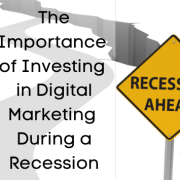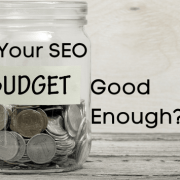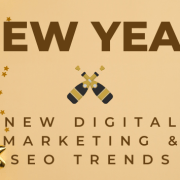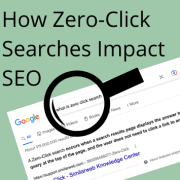Social Media Marketing with Samantha Lenz
Samantha Lenz – PR Professional & Social Media Marketing Expert
Our new social media marketing expert Samantha Lenz notes, “Social media and marketing sort of fell in my lap. It was something that came with the territory of work I was in and wanted to adopt. I soon learned how to leverage my knowledge to better support and help my clients in all aspects of their businesses.”
Samantha Lenz is a content writer by trade and one of our newest members of the 1st on the List team. We are super excited to add Samantha to our roster!
Recently we sat down with Sam for this article to ask her some important questions about all things social media and how it is crucial for your business.
Q&A with Samantha Lenz
1st on the List: Can you tell us a little about yourself?
Samantha Lenz: Hi, I’m Sam and I have been a freelance journalist/writer for the past 12 years and in the past eight, more on the social media side of things. Recently back in May of 2022, I joined the 1st on the List team, when Keiran scoped me out (thanks Google)! When I’m not working, I’m a mom of two humans and two fur babies. In my spare time I love to be at the beach, reading a book, and binge watching my favorite show FRIENDS.
1st on the List: How did you get into social media marketing?
Samantha Lenz: As silly and cliche as it sounds… it sort of fell into my lap. I went to university for journalism and English and wanted to stick to the newspaper and writing side of things. But as we know with the ever-changing times, things were turning more digital and online, so I immersed myself in the digital world and with that came social media.
1st on the List: Can you share about one of your first experiences in social media?
Samantha Lenz: Well now you are making me think WAY back. If I recall correctly, I started managing a few people’s Instagram accounts, local businesses, and close friends (which felt so odd at the time), speaking and ‘pretending’ to be these companies if you will. It felt very intrusive at the time…but boy have times changed!
The Ins and Outs of Social Media Marketing
Now that you have gotten to know our newest social media marketing expert a little bit better, we’re going to let her answer some of the more ‘technical’ aspects surrounding Social Media Marketing to give a better understanding of what it is and how to implement social media in your business.
What is Social Media Marketing?
Samantha Lenz: Social media marketing (also known as digital marketing and e-marketing) is a form of digital marketing that leverages the power of popular social media networks to achieve your marketing and branding goals. This in turn helps build your company’s brand, increase revenue, and drive website traffic.
 Does Social Media Marketing Really Work?
Does Social Media Marketing Really Work?
Samantha Lenz: You will need to spend a little time to understand how each platform differs, what each are best at, and how best to leverage each social media platform for your brand. You also need to have a clear understanding of your target audience and which social media platforms they frequent.
Once you understand where your target audience is and how they use the social media platforms they are on, you can implement marketing strategies designed for success. Although Facebook, Instagram, Twitter, and TikTok are all social media platforms, their purposes and the people that use them are different. What may work on one platform (like Facebook for instance) may not work on the other platforms.
Keep in mind that no matter which platform you are on, it will be constantly evolving. A social media expert can help you navigate the changes to further improve how you leverage the social media universe.
If you want to stay on top of social media and have it really work for you and your business, it’s important to do the following:
- Stay on top of trends
- Be consistent with your content and messaging
- Have distinctive branding and goals
- Utilize influencers (if it pertains to your business)
- Be engaging with your customers and potential clients
What are the biggest benefits of Social Media Marketing?
Samantha Lenz: To leverage social media effectively you need to be creative as well as strategic. Social media can be overwhelming at times but once you understand how to leverage it properly it can be great for your business.
Here are some of the biggest benefits of social media marketing:
- Increased trustworthiness and brand recognition
- More brand loyalty and awareness
- Higher conversion rates
- Higher brand authority
- Increased inbound traffic
- Lower marketing costs
- Better search engine rankings
- Improved customer experiences and insights
Without fully going into detail about each of these above benefits, all of these play a key role with any social media campaign and marketing strategy.
Why should businesses use social media marketing?
Samantha Lenz: While anyone can dive into the world of social media marketing by creating an account and posting, going into it blind is not usually the way to go. Creating goals and a subsequent strategy for your approach to social media is essential.
The majority of consumers are on social media daily so there is great potential for businesses to leverage this and bring their products and services to the right audience. Are you willing to admit how many times you login a day just to browse and scroll? Now think of how many other people are doing that same thing.
Having an online social media presence: Attracts Attention & Improves Your Brand Awareness
Samantha Lenz: People need to discover your business before they can become a customer. Social media can help consumers discover your business and what you have to offer. No matter how big or small of a company you are, social can help you reach a wider audience. There is no cost to you when creating a business profile on the popular social channels like Facebook, Youtube, Instagram, TikTok, etc.
Shows Authenticity
Samantha Lenz: Have you ever read a super dry, corporate-like post? Chances are you kept scrolling or ignored it completely, with an eye roll here or there. Let your brand’s voice and personality shine through in what you share on social media. How are you unique? Who are you and why should people know about you? At the end of the day be true to who you are, and you will attract likeminded individuals.
Communicates Clearly & With Authority
Samantha Lenz: The downside to social media is that there is an overwhelming supply of information out there and right at a customer’s fingertips. You need to ensure that your brand and business stands out with useful information and eye-catching content that bolster’s your online presence. That means making the best first impression compared to your competitors and showing that your business is knowledgeable and trustworthy.
You’ll want to show the value that your business can offer and nurture your customer’s confidence.
What makes a strong social media marketing strategy?
Samantha Lenz: Your social media strategy is your primary plan for how you create, post, and engage with your social media content.
Whether you have a small business or a large corporate brand it’s important to develop a customized social media strategy that aligns with your not only your goals but also your resources. Your strategy needs to be simple, specific, and measurable. I love helping clients identify what works best for them and contributing to their social media success.
Social media strategies also equip you to set goals, track performance, and tweak what is working (or not) over time. Without a starting point, you cannot measure what’s working and how to shift your activity to hit your goals.
How to create a strategy:
- Define your target audience
- Start blogging
- Choose your social platforms
- Create educational content
- Create a social media schedule
- Measure your results
- Adjust your tactics
By following these steps, you’ll be able to leverage social media marketing to attract new customers plus drive leads and sales.
Contact 1st on the List
1st On The List is here to help!
Samantha and our team of social media marketing experts would be happy to set up a consultation to learn about your business and help you achieve your SEO goals and anything social media related.
Contact or call us at 1-888-262-6687 to get started or if you would like more information we can also be reached by email.








